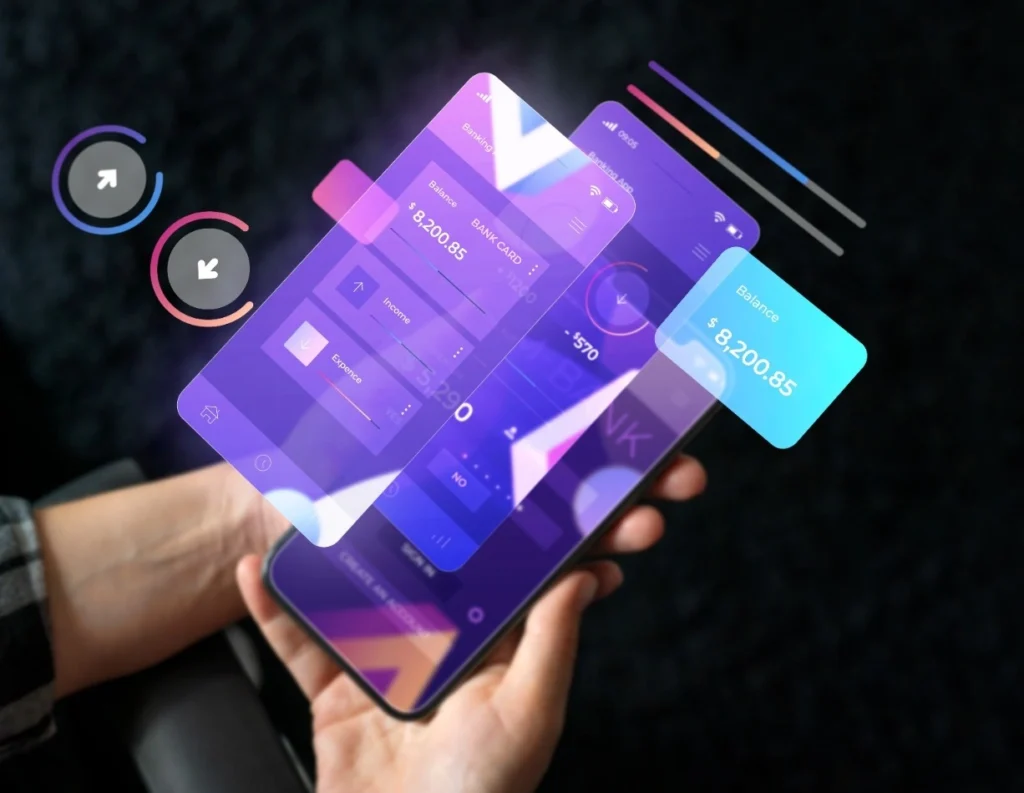10 Most Common Mobile App Development Questions Answered for App Founders
Are you a Middle Eastern entrepreneur planning to invest in mobile app development? Does mobile app development sound too lucrative, lengthy, challenging, tricky or technical to you? Sure it is all of these, but that shouldn’t hold you back from materializing your dream app venture.
Here are answers to the top 10 questions we get from future app founders – and we have covered the technology stack to the cost of hiring app developers. Keep reading!

1. What programming languages are commonly used in mobile app development?
This is a common question we get from app founders who plan on building platform-specific applications. So if you are one, this is the programming languages set used by most mobile app development companies in Dubai:
Answer: For native Android app development: Java and Kotlin
For iOS app development: Swift and Objective-C
For Flutter app development: Dart
2. Is it possible to convert an Android app to iOS (or vice versa)?
Answer: Yes, it is possible to convert an Android app into iOS and vice versa. And you’ll have to dive into a lot of technical jargon to understand the intricacies of the conversion process.
Firstly, it is more practical to develop from scratch for a separate platform instead of converting – that’s because Android and iOS, for example, have way different design requirements that guide accessibility, navigation and user experience.
Secondly, if your app was previously made on a cross platform framework – for example an Android app made with React Native, there are high chances to follow the cross platform development approach and build an iOS app using the existing codebase.
3. What are some common challenges in mobile app development?
Answer: there can be a bunch of technical as well as business-side challenges to mobile app development.
On the technical side, your developer will have to go through device fragmentation – design and develop for different screen size, resolutions and hardware capabilities. Secondly, there are platform-specific limitations that you generally follow during the design process. Sometimes, it’s also difficult to translate the product vision into interface and user experience.
On the business side, you may have to validate your idea with a thorough research process before starting with mobile app development. You’ll have to create a strong competitive analysis, adjust your pricing structures, acquire funds for development as mobile app development companies in Dubai typically charge an average of AED 35,000 for a mid-scope mobile app.
4. What are the key differences between native and cross-platform mobile app development?
Answer: Native development means building separate apps for each platform, Android and iOS, using platform-specific programming languages and tools like Java, Kotlin and Swift as we mentioned in question 1.
On the other hand, cross platform development allows developers to write code once and deploy it across multiple platforms using frameworks like React Native, Flutter and Xamarin.
In comparison, native apps offer native experience, better performance and access to platform-specific features. Cross-platform apps provide faster development cycles and developers can reuse code so it’s more economical.
5. How do you handle app testing and quality assurance in mobile app development?
Answer: App testing is a comprehensive process and includes approaches like manual testing, automated testing and device testing on physical devices or emulators.
Major goals of app testing cover app’s features and functionality, usability, performance, security and maintaining compatibility across different devices and operating system versions.
In the quality assurance stage, we identify and fix bugs, ensure the app is reliable and stable to use and most importantly, it is secure enough to handle data privately.
6. How do you submit apps to leading app marketplaces?
Answer: The app submission process is a rather simple one – though it requires planning and content production in advance.
For Android apps, developers submit apps to the Google Play Store. They undergo a review process and submit app for approval. Google Play store typically published app within 3 weeks of submission.
For iOS, apps are submitted to the Apple App Store. The developers complete documentation for a review process to ensure compliance with Apple’s guidelines.
On both of the stores, we recommend app publishers, deployment professionals and developers provide correct information about the app, true screenshots and keyword-optimized descriptions.
7. How do you ensure app security and protect user data in mobile app development?
Answer: as a mobile app development company in Dubai, we have to follow certain standards and regulatory requirements from the government to ensure data privacy. We typically take these four steps to ensure the same:
We Implement secure authentication mechanisms (e.g., OAuth, JWT tokens).
We encrypt sensitive data stored on the device and transmitted over the network (e.g., HTTPS)
We utilize secure coding practices throughout the development execution to prevent common vulnerabilities (e.g., SQL injection, cross-site scripting)
We regularly update and patch security vulnerabilities in third-party libraries and dependencies.
8. How do you build future-proof mobile apps that will stay relevant in the age of emerging technologies?
Answer: to ensure app developers build future-ready applications that will overcome the business challenges of tomorrow, they integrate the emerging technologies in the architecture and scope of our apps. For example, developers utilize AR and VR frameworks to build immersive experiences. They automate smart home systems with IoT integrations. They develop applications that go beyond mobile – and work on smartwatches, TVs and other screens.
Several mobile app developers in Dubai have recently started integrating AI and ML algorithms and models in the app wherever applicable. Some examples include personalized product recommendations in ecommerce apps.
9. What factors influence the cost of mobile app development in Dubai?
Answer: the app development costs in Dubai typically start from AED 5500 and advanced apps can even go up to AED 85,000, here are top 4 factors that may increase the app development costs:
The scope of app which then guide design requirements and list of features
The platform you are launching for and technology stack
Integration with third party APIs and database requirements
Quality of existing code, testing and maintenance
10. What should businesses consider when hiring a mobile app development company in Dubai?
Answer: remember that this is one of the key decisions you are making that will make or break the success of your app. Firstly, you have to check from which web development company dubai you are completing your project with, this will help with project communication and budgeting. Secondly, you have to find a company that has relevant technical expertise and niche experience, with a proven track record of building portfolio-worthy apps.
You may also check Mobile App Development for Fintech in Dubai.
Conclusion
This list of 10 common app development questions concludes here. If this is your first step and you’re currently in your research phase, we recommend you begin your app development journey with a strong business plan. Do your financial projections for the next five years, think about funding requirements and work with the right app development company since they’ll be your partners during execution and post-launch.






